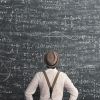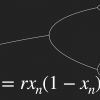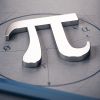-
 +31 +1
+31 +1How to Build an Origami Computer
Two mathematicians have shown that origami can, in principle, be used to perform any possible computation.
-
 +39 +1
+39 +1Missing 'Law of Nature' Found That Describes The Way All Things Evolve
Complex, evolving systems abound in our Universe, even beyond the realms of biology.
-
 +28 +1
+28 +1The Early History of Counting
How ancient peoples learned to keep a tally.
-
 +11 +1
+11 +1Mathematicians Discover The Ninth Dedekind Number, After 32 Years of Searching
Undeterred after three decades of looking, and with some assistance from a supercomputer, mathematicians have finally discovered a new example of a special integer called a Dedekind number.
-
 +21 +1
+21 +1Has a mathematician solved the 'invariant subspace problem'? And what does that even mean?
Swedish mathematician Per Enflo famously received a live goose for settling a difficult unsolved problem. Has he done it again?
-
 +23 +1
+23 +1Cryptris - An asymmetric cryptography game
Discover the universe of cryptography: play against the computer to find out who will be able to decrypt the fastest. Many challenges await you, are you ready?
-
 +25 +1
+25 +1How a magician-mathematician revealed a casino loophole
When a gang of gambling cheats sussed out how to beat the house, they inadvertently highlighted a loophole from a shuffled deck. It took a magician-turned-mathematician to reveal how.
-
 +19 +1
+19 +1Why Mathematicians Study Knots
Far from being an abstract mathematical curiosity, knot theory has driven many findings in math and beyond.
-
 +22 +1
+22 +1DeepMind AI One-Ups Mathematicians at a Calculation Crucial to Computing
AlphaTensor opens the door to a world where AI designs programs that outperform anything humans engineer—including AI itself.
-
 +14 +1
+14 +1Counting from left to right feels ‘natural’ – but new research shows our brains count faster from bottom to top
Horizontal number lines are often the default option – but our brains may process numbers more quickly in a vertical arrangement.
-
 +22 +1
+22 +1‘I was doing it for fun’: man, 92, could be oldest Briton to pass GCSE exam
A 92-year-old man could be the oldest person in Britain to ever pass a GCSE exam after receiving the highest possible grade in his maths paper. Derek Skipper, from Orwell in Cambridgeshire, sat a foundation level maths exam earlier this year, and found out on Thursday morning he had achieved a level 5 (equivalent to a lower B).
-
 +18 +1
+18 +1Black Holes Finally Proven Mathematically Stable
In 1963, the mathematician Roy Kerr found a solution to Einstein’s equations that precisely described the space-time outside what we now call a rotating black hole. (The term wouldn’t be coined for a few more years.) In the nearly six decades since his achievement, researchers have tried to show that these so-called Kerr black holes are stable.
-
 +16 +1
+16 +1Paper airplanes show off new aerodynamic effects
The findings enhance our understanding of flight stability and could inspire new types of flying robots and small drones. “The study started with simple curiosity about what makes a good paper airplane and specifically what is needed for smooth gliding,” says Leif Ristroph, an associate professor at New York University’s Courant Institute of Mathematical Sciences and an author of the study in the Journal of Fluid Mechanics.
-
 +15 +1
+15 +1A mathematician explains what Foundation gets right about predicting the future
The ideas behind psychohistory are more scientific than you might think.
-
 +4 +1
+4 +1Teachers and too much homework contribute to maths anxiety – study
Level of maths anxiety within same school or classroom found to predict individuals’ maths achievement
-
 +24 +1
+24 +1In breakthrough, DeepMind's AI has cracked two mathematical problems that have stumped experts for decades
DeepMind's AI is probably best known for cracking the popular strategy game Go, but in the last few years, machine learning has proved extremely valuable in an array of applications like protein-folding and deep intuition. Now, for the first time, the technology has been used to identify mathematical connections that have eluded researchers for decades. Teaming up with mathematicians, DeepMind's AI sought to tackle two distinct problems – one in the study of symmetries and the other in knot theory.
-
 +11 +1
+11 +1This equation will change how you see the world (the logistic map)
Chaos and the Feigenbaum constant
1 comments by kxh -
 +5 +1
+5 +1Grigory Perelman, the maths genius who said no to $1m
Perelman cracks a century-old conundrum, refuses the reward, and barricades himself in his flat
-
 +9 +1
+9 +1A Mathematician's Guided Tour Through Higher Dimensions
The concept of a dimension seems simple enough, but mathematicians struggled for centuries to precisely define and understand it.
-
 +22 +1
+22 +1Swiss university claims it broke the record for Pi calculation
Most people know the value of Pi as 3.1416, but it's gotten longer and longer over the years as researchers try to find its most accurate calculation. A team from the University of Applied Sciences Graubünden in Switzerland now claims it has broken the world record for computing for the mathematical constant: It said it has calculated for 62.8 trillion digits of Pi. The current record holder, Timothy Mullican, calculated up to 50 trillion digits and was recognized for his work last year.
Submit a link
Start a discussion




















